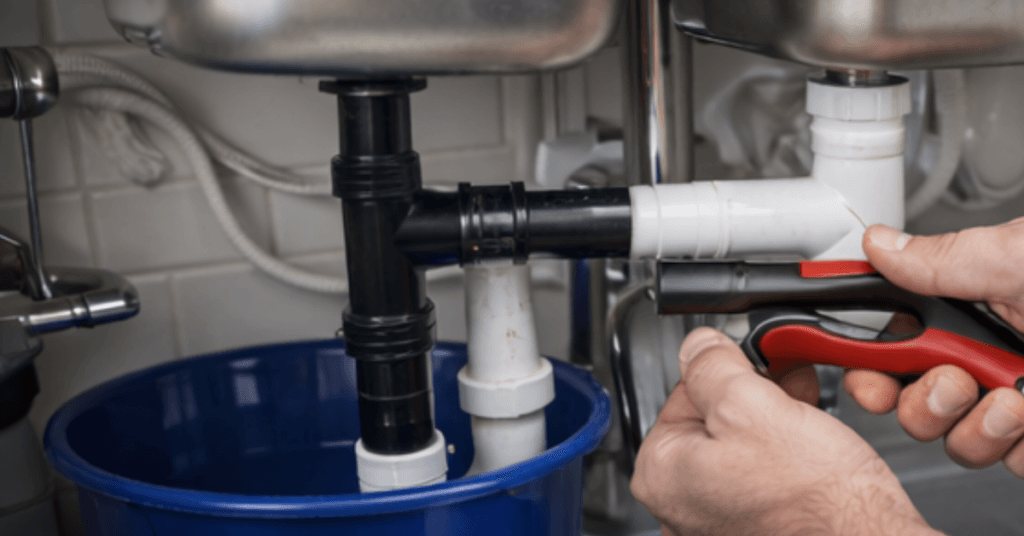
Flushable wipes have become a household staple for many Central Oregon residents. They’re marketed as convenient, sanitary, and safe for your plumbing — but the reality is more complicated. While packaging often claims they are “flushable,” the Environmental Protection Agency (EPA) has repeatedly warned that these products can cause serious plumbing and wastewater issues.
If you own a home in Bend, Redmond, or anywhere in Central Oregon, understanding the truth about flushable wipes can save you from costly plumbing repairs and protect your community’s wastewater system.
What the EPA Says About Flushable Wipes
The EPA Wastewater Management guidelines make it clear:
Even if wipes are labeled “flushable,” they don’t break down the same way toilet paper does. Unlike toilet paper, which disintegrates quickly in water, flushable wipes remain largely intact as they travel through pipes. This can cause clogs in:
- Your home’s plumbing system
- Septic tanks
- Municipal sewer lines
- Wastewater treatment facility equipment
The EPA explains that wipes — along with other non-flushable materials like paper towels, feminine hygiene products, and cotton swabs — contribute to “fatbergs”, massive blockages made of grease, wipes, and debris. These clogs can damage infrastructure and cost cities millions in repairs.
Why “Flushable” Doesn’t Mean Safe for Your Pipes
From a marketing perspective, “flushable” means a product can physically pass through a toilet’s trap and into the sewer system. From a plumbing perspective, however, that’s only half the story.
Here’s why the flushable wipes label is misleading:
- They don’t break down fast enough
Tests show wipes can remain intact for days, while toilet paper dissolves in minutes. - They snag on imperfections in pipes
In older homes, rough spots inside pipes act like hooks, catching wipes and creating the foundation for clogs. - They combine with other debris
Once caught, wipes can bind with hair, grease, and soap scum to form stubborn blockages.
The Costly Impact on Homeowners in Central Oregon
For homeowners, flushing wipes can lead to:
- Backed-up toilets
- Slow drains
- Septic tank failures
- Costly emergency plumbing calls
Repairing a main sewer line blockage can cost thousands of dollars — and if the clog is caused by non-flushable items, the repair often isn’t covered by insurance.
If you live in Central Oregon, where many properties rely on septic systems, wipes can also damage your tank and drain field. The EPA warns that wipes can cause solid buildup in septic tanks, leading to premature failure.
Environmental Consequences
The problems don’t end with your plumbing. Wipes that make it through your pipes can cause:
- Damage to wastewater treatment equipment
- Increased maintenance costs for local municipalities
- Pollution in rivers, lakes, and oceans if debris escapes into waterways
In short — flushing wipes harms not just your home, but also our shared environment.
Better Alternatives to Flushable Wipes
If you enjoy the convenience of wipes but want to protect your plumbing, consider:
- Bidet attachments – These provide a hygienic, water-based clean without disposable waste.
- Wipes disposal in trash bins – Keep a small, lidded bin near the toilet for used wipes.
- EPA-recommended toilet paper – Stick to paper that meets breakdown standards.
For guidance on water-efficient and plumbing-safe fixtures, visit our plumbing services page for trusted solutions.
Central Oregon Plumbing Tip: Prevention is Cheaper Than Repairs
The best way to avoid flushable-wipe-related damage is simple — don’t flush them. Even if a product says it’s safe, the EPA’s stance is clear: toilet paper should be the only paper product going down your toilet.
Regular plumbing maintenance can help you detect early warning signs of buildup before a complete blockage occurs. Einstein Pros offers thorough inspections to ensure your pipes and septic system remain in top shape year-round.
What to Do If You’ve Been Flushing Wipes
If you’ve been flushing wipes for months or years, don’t panic — but act proactively:
- Schedule a plumbing inspection to check for partial blockages.
- Switch immediately to proper disposal in the trash.
- Have your septic system pumped (if applicable) to remove accumulated solids.
We recommend booking a professional assessment if you notice gurgling drains, frequent clogs, or slow-flushing toilets.
Key Takeaway
While the label might say “flushable,” the EPA warns these wipes are a major source of plumbing and environmental damage. For Central Oregon homeowners, the safest and most cost-effective choice is to keep wipes out of your toilet entirely.
At Einstein Pros, we’ve seen firsthand how “flushable” wipes lead to unnecessary expenses and stress for homeowners. By following the EPA’s guidance and making a few small changes, you can protect your plumbing, save money, and help safeguard Central Oregon’s water systems.
Sources: